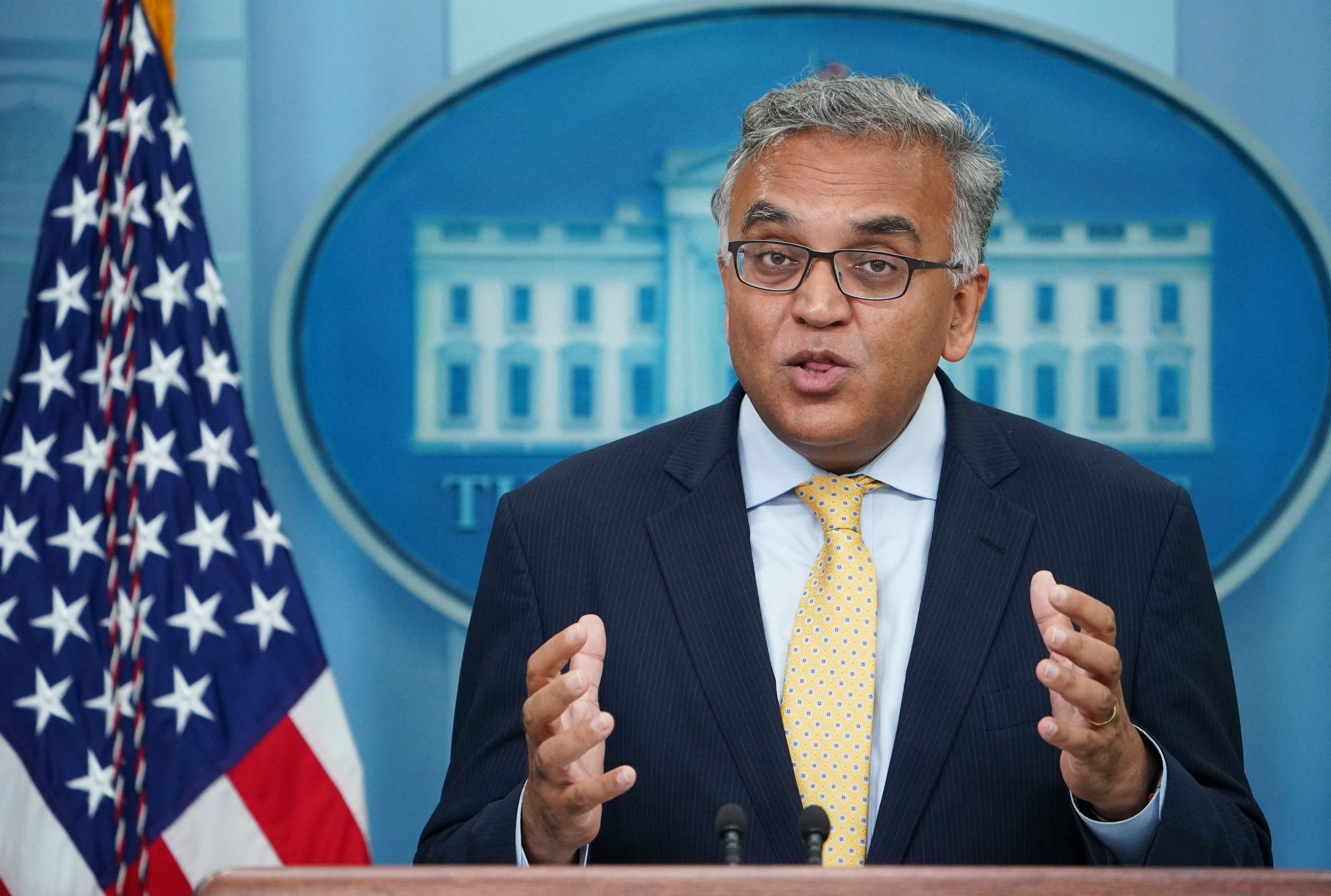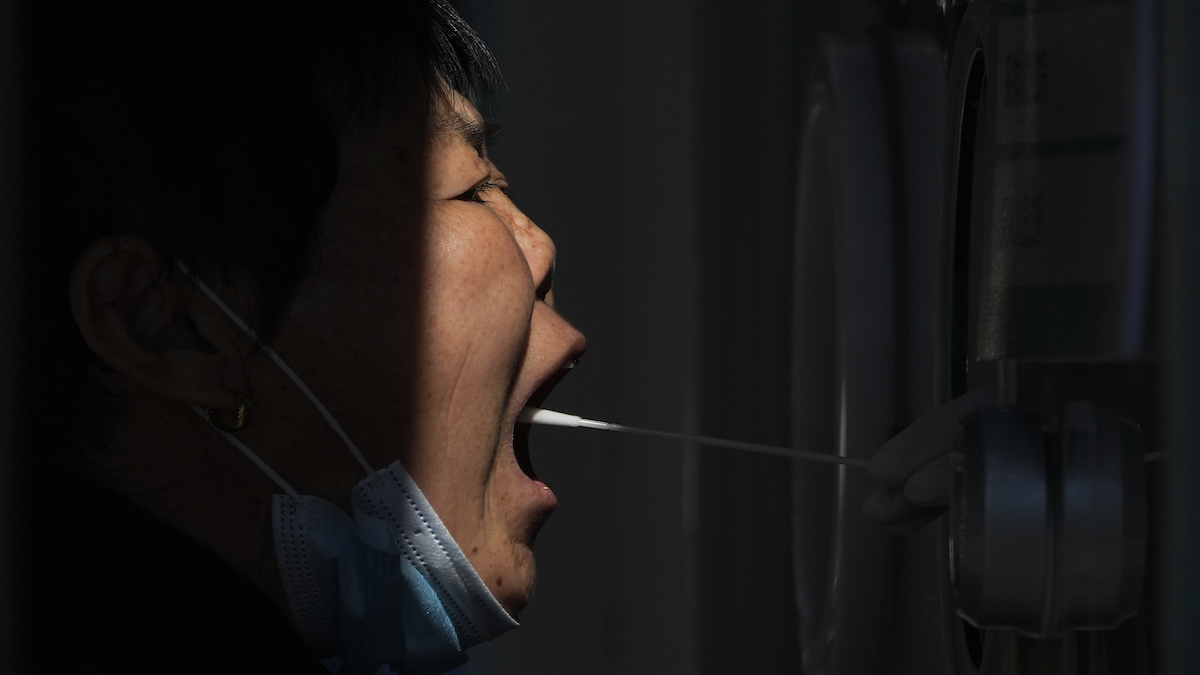Between COVID-19, the flu and RSV, doctors worry that we could be facing a triple threat of infections this holiday season.
The rise in respiratory viruses comes as new immune-evading COVID-19 subvariants take over and amid concerns about hospital capacity and staffing shortages. One recent report by the Massachusetts Health & Hospital Association estimates that the state's hospitals are short nearly 20,000 workers.
Tufts Medical Center's Dr. Shira Doron, Brigham and Women's Hospital's Dr. Daniel Kuritzkes and Boston Medical Center's Dr. Sabrina Assoumou explained the best ways to avoid getting sick over the holidays during NBC10 Boston's weekly "COVID Q&A" series.
Get New England news, weather forecasts and entertainment stories to your inbox. Sign up for NECN newsletters.
RSV — short for respiratory syncytial virus — looks like a common cold in adults and older children, according to Doron, but both young children and older adults are at risk of severe infection.
"One has to be aware of the risk it poses to infants," Doron said. "So if you have an infant under the age of six months or under the age of a year who was premature or has underlying cardiac or respiratory issues, right now with RSV circulation so high, this is not the time to be passing the baby around the Christmas table."
Doctors worry a lot about contact transmission with RSV, more than with COVID, Doron said. Before the pandemic, health care workers only used gowns and gloves while treating RSV. That has since changed.
"Contact is very important," Doron said. "Adults need to be aware that they may have a very mild cold, but they could give that cold to a baby or someone who's elderly and it could be RSV, or really any virus, and can be quite dangerous for somebody who's more vulnerable. So, again, as hard as it is to stay home from a holiday gathering just for a cold, at this time it is important to do so."
Steps to Stay Safe Over the Holidays
Experts say that plenty of precautions can be taken to prevent the spread of infection at holiday parties, including vaccines, masks, proper ventilation and testing.
"Right now, we're worried about COVID, about the flu — flu cases are increasing — RSV, which is really impacting a lot of the children's hospitals around the country," Assoumou said. "Let's remember, these are respiratory viruses. So the principles are often very similar for what you need to do."
This is not the time to be passing the baby around the Christmas table.
Tufts Medical Center Hospital Epidemiologist Dr. Shira Doron
It's important to make sure you're up to date on vaccinations, including COVID boosters, according to Assoumou.
"Get your updated booster. If you haven't gotten vaccinated yet for COVID, get vaccinated. Get your flu vaccine, because that's also a way that you can protect yourself," Assoumou said.
The bivalent boosters are recommended by the U.S. Centers for Disease Control and Prevention for people over the age of 12 who have already had their primary vaccination series — either two shots of the Pfizer or Moderna vaccines or the single-shot Johnson & Johnson one. But only a small percentage of fully vaccinated people have opted to receive the bivalent booster.
In the past, experts have attributed that in part to a lack of data around the bivalent booster, since the shots were distributed without results from human trials. The CDC has since released a study that found it offers some additional protection, Kuritzkes explained.
"We finally have some efficacy data from the CDC and they are not really overwhelming," Kuritzkes said. "Depending on your age and how many shots you had, it was somewhere between 20 and 60% protected, which is not a whopping argument for running out and getting a bivalent booster if you had your last booster six months ago and you're in your 20's."
People can also take non-pharmaceutical mitigation measures, such as wearing a mask, which one study shows cuts COVID rates.
"If you're in a location where cases are high, it is a good idea to wear a mask indoors in public settings," Assoumou said.
Assoumou added that there are ways to improve ventilation at home, such as opening windows or installing a HEPA filter. Finally, as public health experts have said throughout the pandemic, anyone who is feeling sick should stay home. Testing is available for COVID, RSV and the flu.
"The last thing would be if you are someone who's at high risk for getting severe complications from COVID, talk to your doctor right away if you're infected because we do have medications that work very well," Assoumou said. "And that could be a good option for you."



